Farming is intense work that takes a lot of effort. Thankfully, many of the manual labor jobs done by humans can now be accomplished with machines. The power and efficiency of farm equipment make farming possible on a larger scale. It also saves time and money.
Finding the right equipment is essential to successful farming once you grow out of your backyard garden. A sizeable plot of land will need mowers, diggers, harvesters, and other equipment to maintain.
Whether you’re starting a small farm yourself or are simply interested in learning what type of equipment farmers use, here are some of the typical machines and other equipment you’ll find on a typical farm.
Table of Contents
1. Tractors
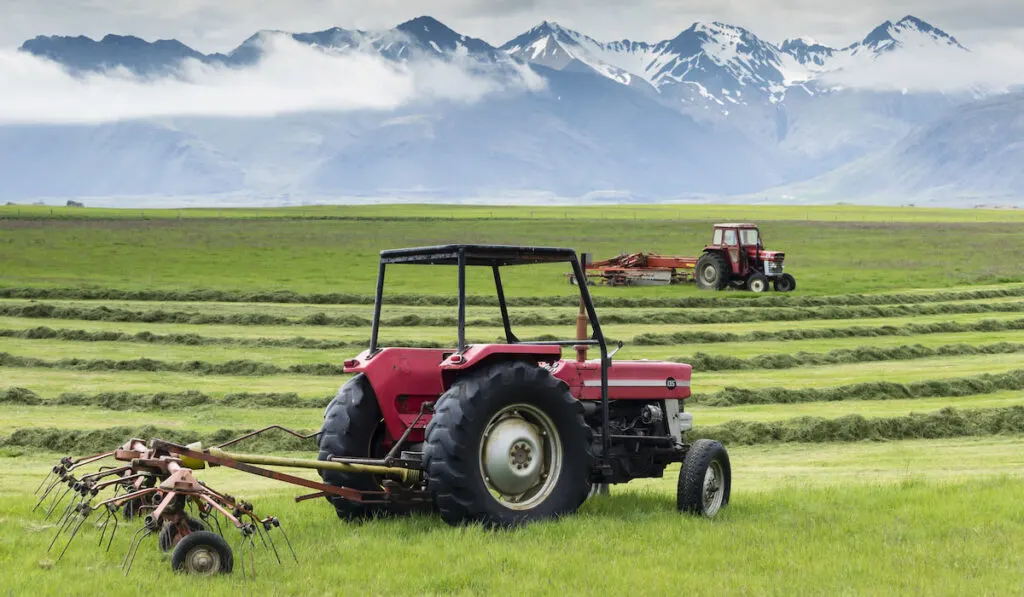
Tractors are one of the classic pieces of farm equipment that country music stars have written songs about for decades. These large, powerful machines make all sorts of farming jobs possible and easy. On a tractor, you can mow pastures, plow fields, pull loads, and various other things.
Tractors come in assorted sizes with varying horsepower depending on what you need them for and how big the farm is. However, it’s always one of the first machines small farmers buy because a good tractor can do so many things!
Buying the right tractor can be quite technical, so either make sure you do plenty of research ahead of time or seek advice from someone who knows better about tractors.
They cost a lot of money, so you need to guarantee you get the right kind. A starter tractor will cost you in the neighborhood of $10,000 or more.
2. Farm Trucks
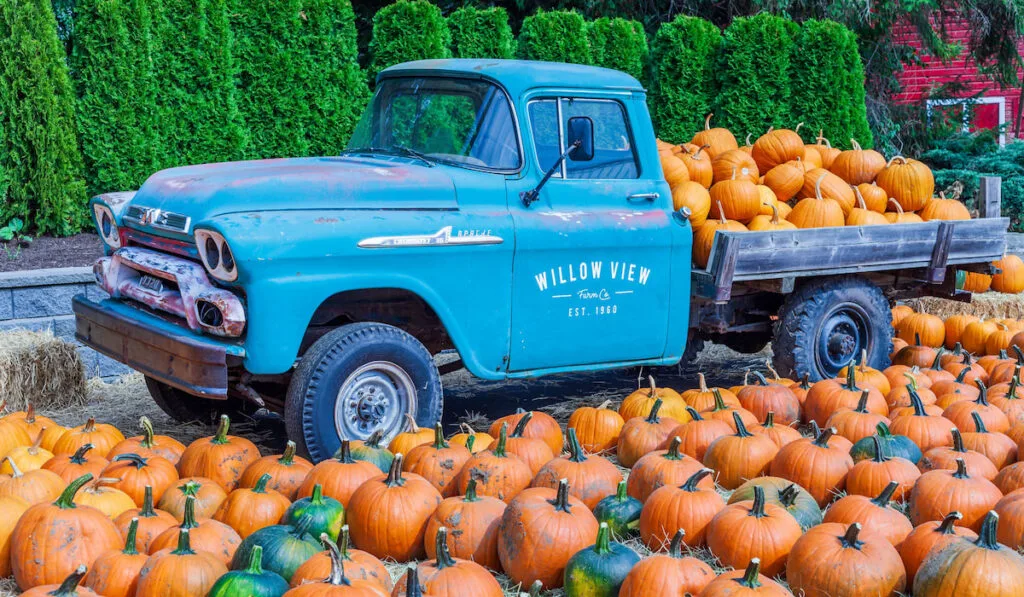
Every farmer needs a good pickup truck to load hay, carry tools, and use as a get-around car. Trucks are great on farms because they usually sit higher on their wheels than sedans. They have better shocks and are more powerful to carry and pull heavy loads.
A good farm truck doesn’t have to be new to work. You can buy a used truck, but trucks mean a lot to most farmers because they use them all the time, so they want something reliable if not nice.
Similar to tractors, you should buy a pickup truck that can get the job done. Find out how much space and engine power you need and make a smart purchase for your farm.
3. ATVs
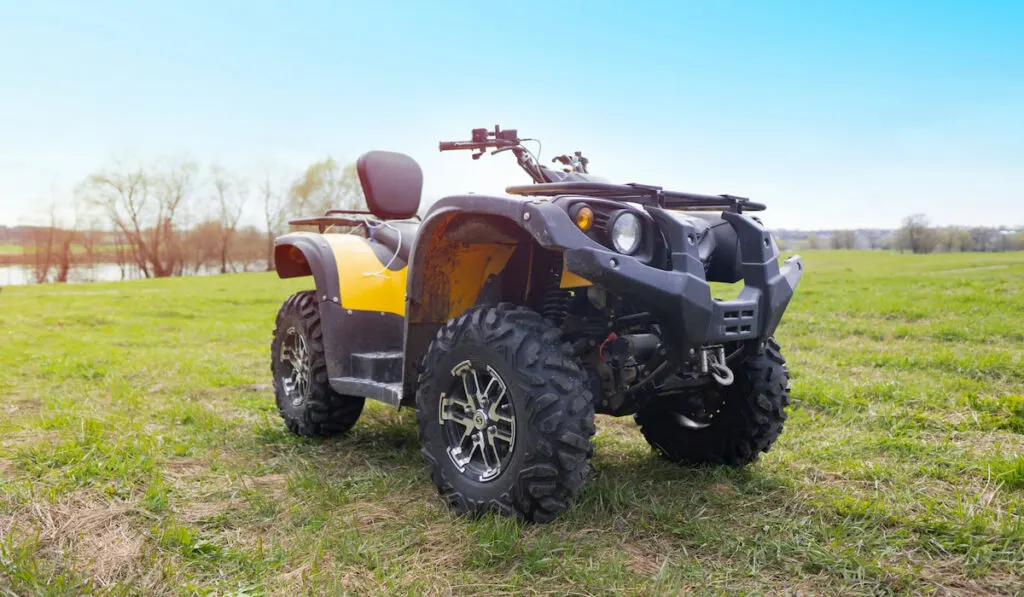
ATVs are like the modern version of the horse. In generations past, farmers would hop on a horse whenever they needed to check out parts of their farms that weren’t accessible by truck.
Horses were agile enough to help farmers herd cattle or stand nearby while they worked on a broken fence.
However, these days, horses are replaced by four-wheelers and other ATVs. They’re cheaper and more durable than horses and can zip a farmer around the property in minutes.
One of the best things about ATVs is that they double as recreational or hunting machines, so they’re not just for work. You can store them in a garage on a farm or stow them near your cars at the farmhouse.
4. Tractor Attachments
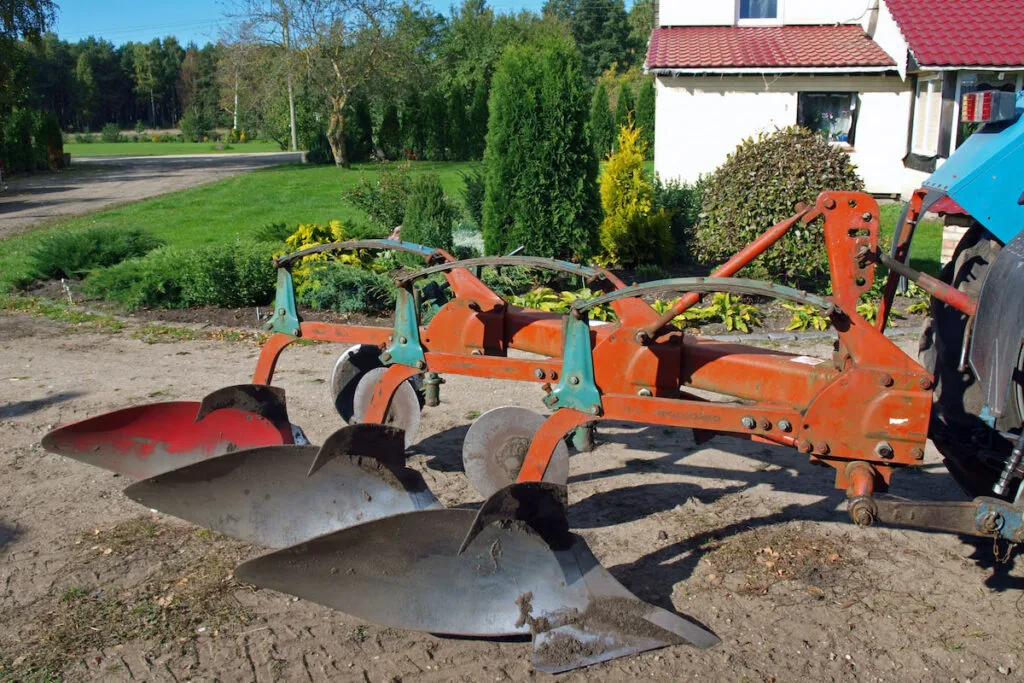
The tractor refers to just the vehicle. On its own, a tractor is just a heavy piece of machinery on wheels. However, when you need to get farming work done, you need a good tractor and the right attachments.
Tractor attachments are some of the most common pieces of equipment that you’ll see on a farm or large homestead. Farmers switch them out based on what needs to be done for the day.
For example, you can use a chisel plow to churn deeper soil to get it ready for seed before planting season arrives. Another attachment is a moldboard plow that cuts into the soil to turn it over and aerate it if it hasn’t been used for a few years.
There are a lot of types of farms in the country, and farming equipment manufacturers are constantly inventing new tractor attachments designed to save time.
5. Balers
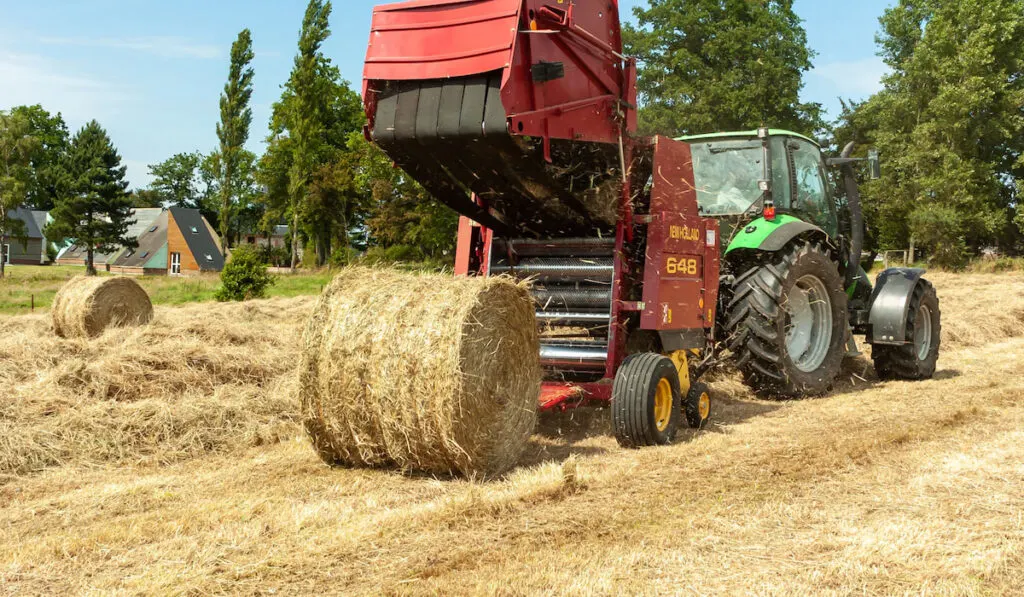
Balers are a must-have for farmers who harvest straw, corn, hay, and anything else that needs to go into storage. If you’ve ever seen those round mounds of hay that sort of look like a dinner roll or a cinnamon roll sitting on farm pastures, that’s what round balers make.
These machines gather stalks or straws into large piles and then wrap them with plastic netting or rope. You can buy a circular baler for large rounds, or a square baler for smaller, individual bales.
Based upon your farm’s needs, square bales may make more sense, but they require more manpower to handle. Round bales can only be handled with machinery because of their size.
The cost of balers varies widely depending on which bale type they make and the manufacturer, but they are not inexpensive. You can expect to pay upwards of $10,000 for either kind of baler used, and much more when the implement is new.
6. Backhoes
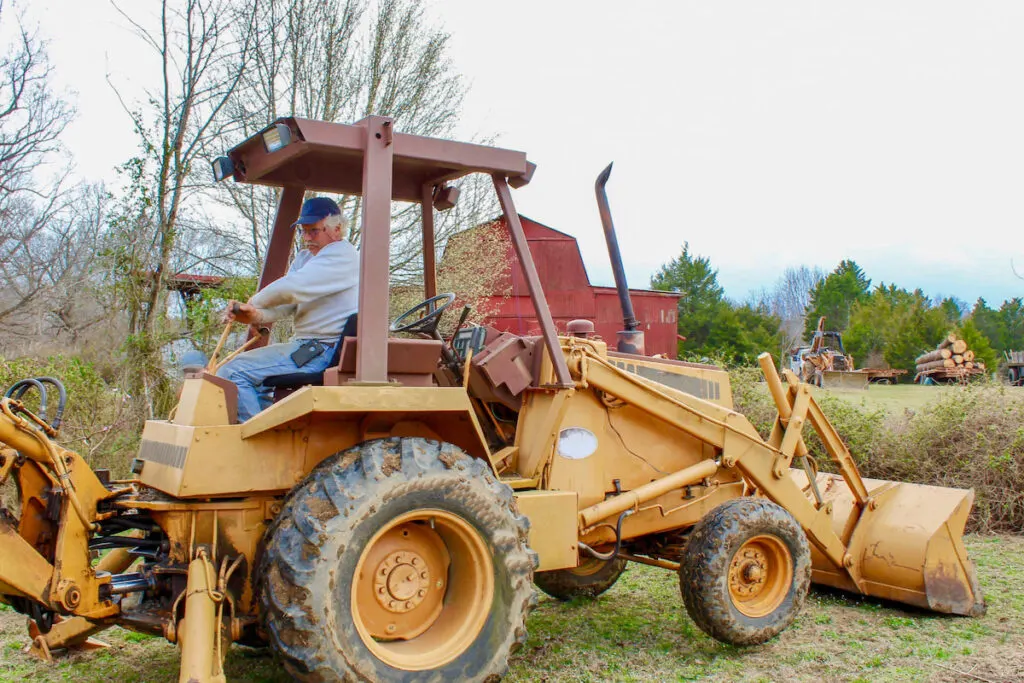
A backhoe is not something every farmer has, but they certainly come in handy if you need to dig more than 6 feet deep. Save your back and a ton of time by either buying or renting a backhoe for your farm.
Luckily, you can also buy backhoe attachments that go on your tractor. There’s no need for an entirely different vehicle. Backhoes are great for installing fencing, building structures, or digging a pool in your backyard!
7. Irrigation Systems
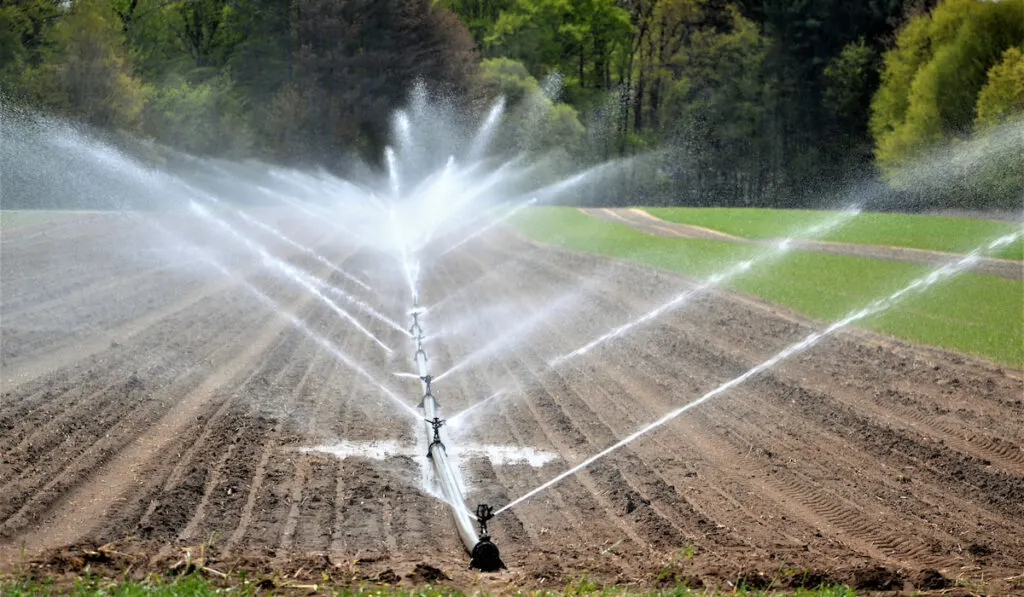
We’ve touched on some of the most common farming vehicles and machines you’ll find, but every farm needs plenty of non-machine equipment.
One example is an irrigation system. Whether you’re farming vegetables, fruit, or animals, you need lots of water. Water can transform your property into a thriving plot that yields good fruit.
Of course, there are many types of irrigation systems, like drip or hose systems. The type of irrigation equipment you’ll need will depend on where you live and if you have natural water on your property.
8. Spreaders
Spreaders attach to tractors, trucks, ATVs, and other vehicles to disperse mulch, seeds, manure, or anything else you want to spread over your land. Farmers have spreaders that significantly cut the time it takes to accomplish basic farming tasks.
9. Animal Equipment
Animal equipment is required for farmers with livestock or pets on their farms. For instance, any farmer with animals will likely need equipment like heat lamps, saddles, ropes, fencing, etc., to maintain their animals’ safety and build enclosures that shelter them from harsh weather conditions.
10. Cultivators
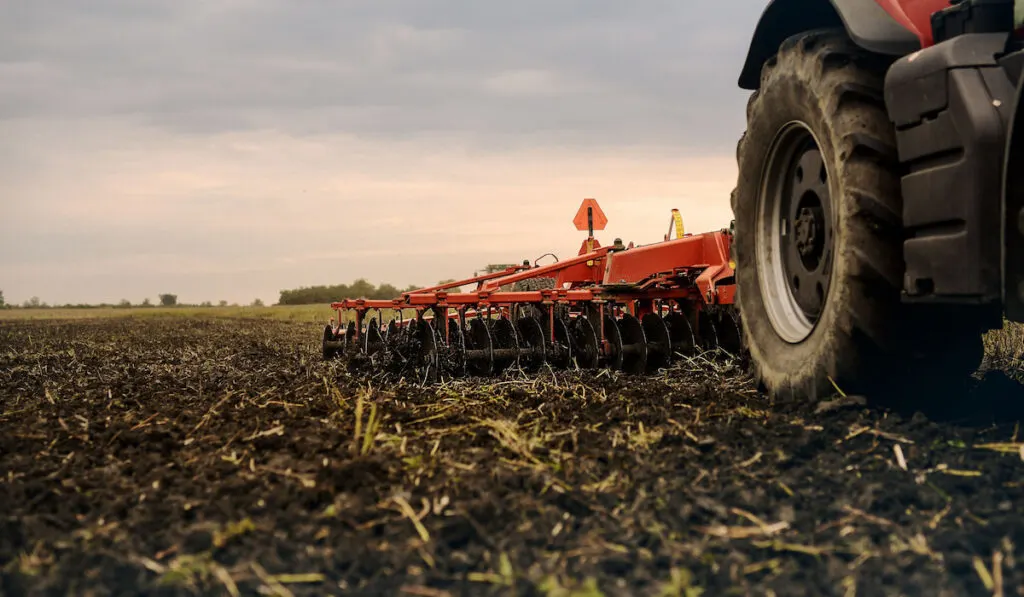
Cultivators are what you use when you want to space out your crop lines or garden beds to get them ready for planting.
A cultivator has multiple adjustments you can move to achieve the desired crop line size. Then, you pull the attachment behind your tractor along your fields until the lines look good.
You can also use a cultivator to destroy weeds that are growing between crop lines. Again, it presents a more orderly field that’s easier to care for and harvest when the time is right.
11. Front-End Loaders
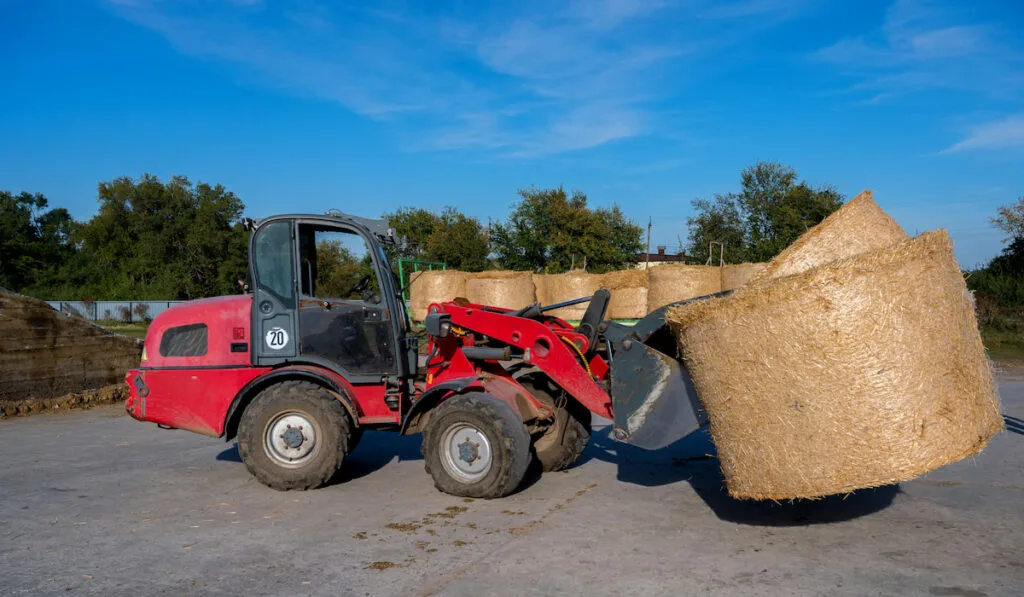
A loader is a treasured piece of farming equipment that is best for individual farmers who need to move heavy loads regularly. You can fit an attachment on the front of your tractor or buy a separate machine.
Front-end loaders are great for moving piles of dirt, manure, mulch, etc., and they’re great for doing jobs by yourself. For example, once you know how to use the loader, you can use it to grade lands, dig irrigation ditches, or even hold up fence posts during installation.
Conclusion
These are just a few of the common types of farm equipment you’ll see or need. However, they can handle most tasks you come across. The good news is that many of these are customizable, so you can purchase attachments if you need something more specific.
